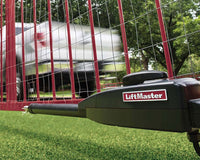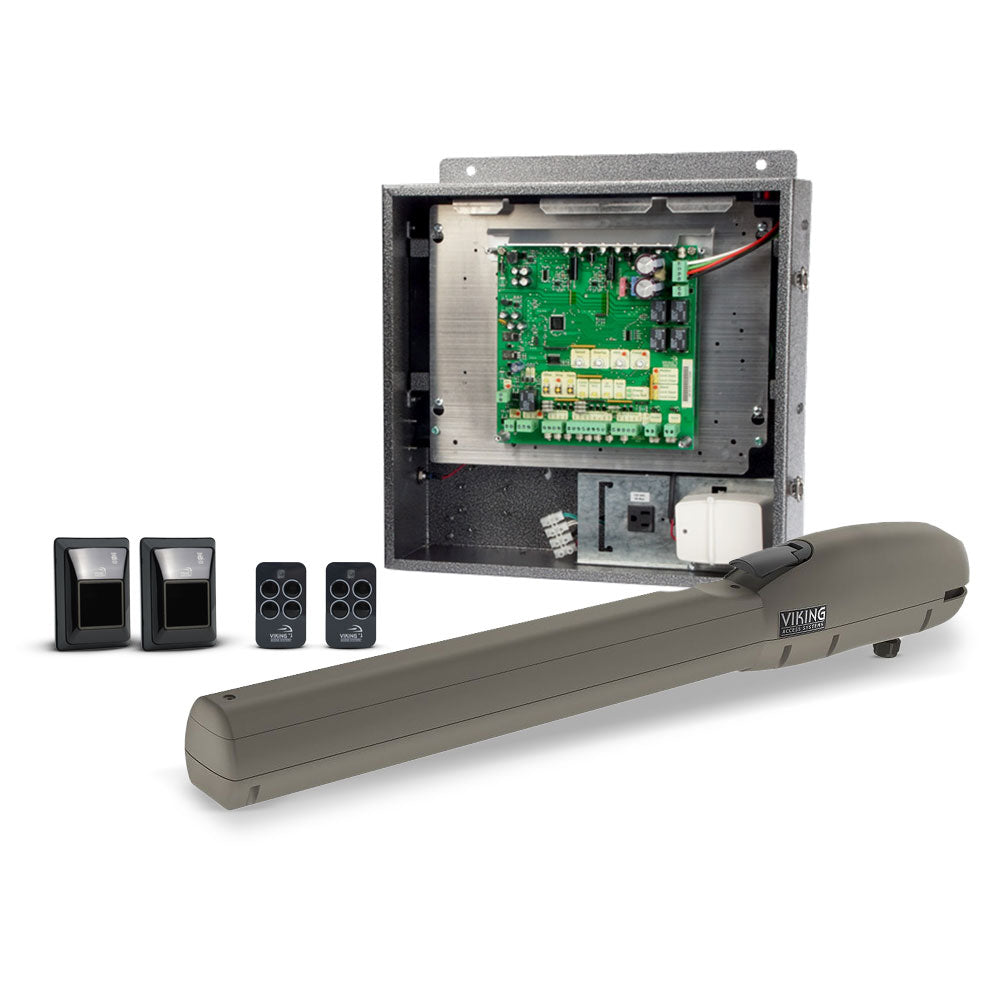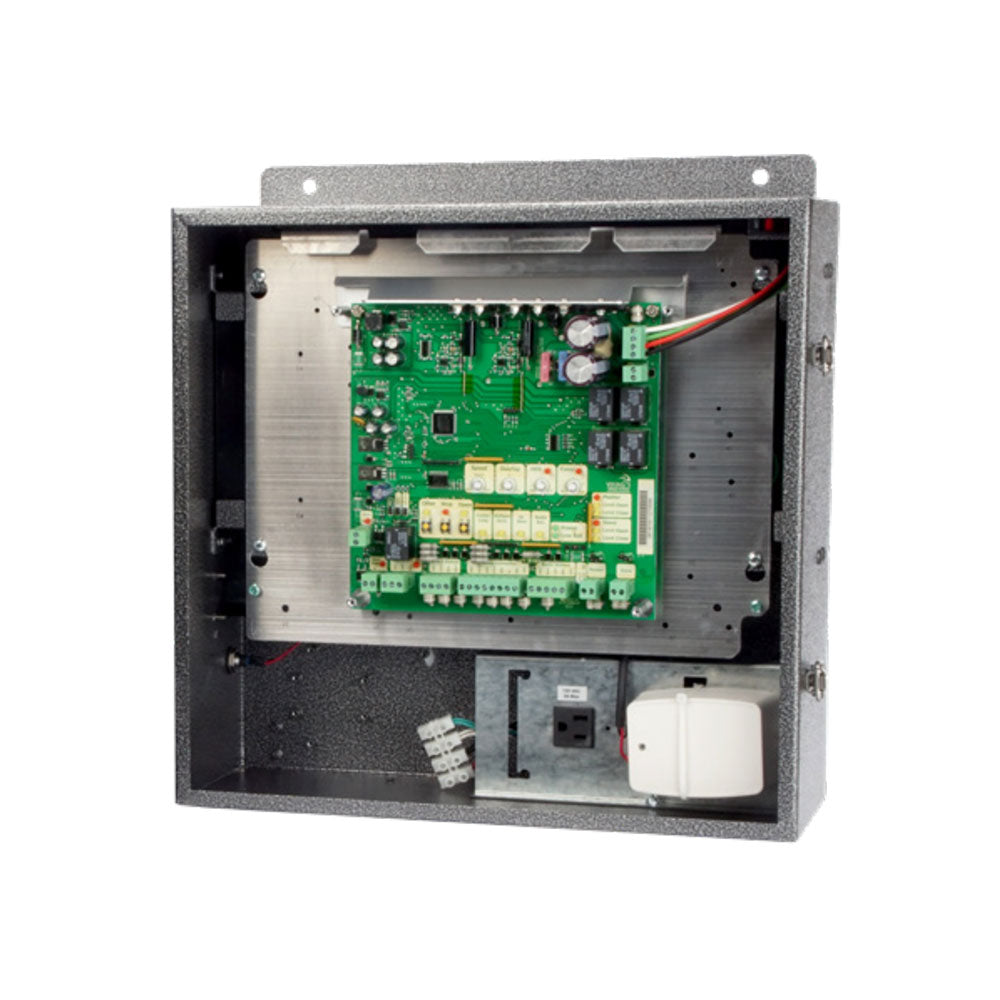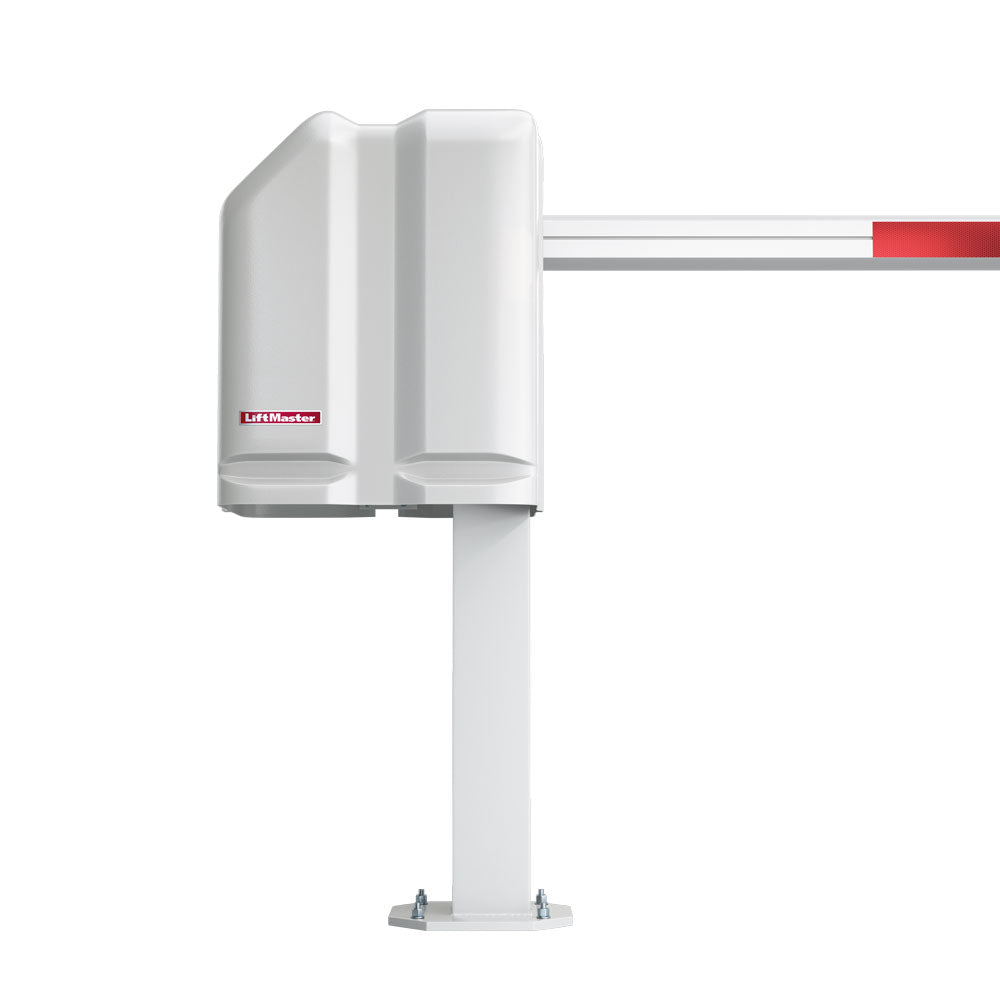What You Need To Know: Automated Gate Access and The Future
Automated gate access systems are crucial for secure property entry and exit. Mainly utilizing automatic gate openers to control gate movement, these openers interface with access control methods like keypads, remotes, intercoms, and vehicle detection. Property managers benefit from streamlined resident and service access while business owners and security personnel achieve stronger perimeter defense. The reliability and versatility of these systems have proven vital for modern property management and security strategies time and time again.

Today, the automatic gate industry is constantly innovating through advancements in electronics, materials, and communication. Modern gate openers offer improved durability, quieter performance, and enhanced safety features like obstacle detection and emergency releases. Integration with smart home systems and mobile apps has become a must-have, enabling remote gate control and monitoring, boosting convenience and security.
The integration of Artificial Intelligence (AI) into automatic gate openers seems to be, then, almost inevitable, and marks the next significant advancement in access control. AI will offer the potential for proactive security, enhanced convenience, and intelligent management, moving beyond basic open/close functions. Today's All Security Equipment blog explores this promising future lead. Our goal is to clarify the potential impact of AI on automatic gates, providing insights for homeowners, property managers, business owners, and security personnel.
By highlighting ten key areas of anticipated improvement, we aim to offer a clear understanding of these upcoming advancements and how they can further enhance property security, convenience, and efficiency.
What You Need To Know: AI and Access Control

Artificial Intelligence (AI) fundamentally refers to the simulation of human intelligence processes by computer systems. This encompasses a broad range of capabilities, but mainly when we talk about AI we tend to refer to machine learning, where systems learn from data without explicit programming; deep learning, a subset of machine learning using neural networks to analyze said complex data and natural language processing (NLP), enabling computers to understand and process languages. Also included are computer vision, allowing systems to "see" and interpret images; and expert systems, designed to mimic the decision-making abilities of human experts.
The core of these AI technologies empower machines to perform tasks that traditionally require human intellect, such as reasoning, problem-solving, perception, and learning. Or in the case of access control and automated gates, regulating the entrance and exit of individuals into your property, as well as maintaining an enhanced security perimeter.

If this is all sounding a bit too technical, think of it this way: AI would be like a very smart computer-student. First, it learns faces. You show it many pictures of your family and friends, and it starts to recognize them. Second, it learns routines. In this case, it watches when you usually arrive home and leave, and if a car it doesn't recognize shows up at a strange time, it might send you an alert, like a watchful neighbor noticing something unusual. Third, it learns to listen for specific sounds, like a repeated knocking at the gate when no one is expected, and then alerting you to potential visitors or even intruders.
10 Possible Improvements AI Could Bring to Your Automated Gate System
Now that we’ve properly established the importance of Automatic Gate Access and what AI is, and how it could function together with your automated gate system, here is our list of the ways we expect it could be implemented in future features in the industry.
1. Enhanced Security Protocols:

AI empowers gate openers with intelligent security. Machine learning algorithms can analyze access patterns, distinguishing normal entry from suspicious activity. This adaptive learning strengthens defenses against unauthorized access attempts, creating a smarter, more vigilant gate system.
For instance, an AI-powered gate might learn that your work vehicle typically exits at 8 am and returns at 5 pm. If the gate opens unexpectedly in the middle of the night for an unfamiliar vehicle, the system could trigger an alert sent directly to your phone or security provider, significantly improving security awareness.
2. Intelligent Access Control:
AI will likely transform access control by enhancing many already existing advanced features. Automated Facial recognition, for example, could identify authorized users, granting seamless, biometric-based entry. This enhances security and provides a convenient, completely hands-free experience for residents and authorized personnel.
Imagine your gate automatically opening as your car approaches, recognizing your face without you needing to stop, present a credential or even carry an access fob, offering a smoother and more secure arrival experience.
3. Dynamic Obstacle Detection:
AI-driven gate motors could dynamically detect obstructions. Machine learning algorithms could be taught to analyze sensor data to identify people, vehicles, or objects in the gate's path. The system will adapt its movement, preventing accidents and minimizing potential damage.

If a child were to run into the path of a closing gate, an AI-powered system could instantly detect them and halt or reverse the gate's movement, significantly enhancing safety for family owned homes.
4. Predictive Maintenance:
AI algorithms analyze historical data and performance patterns to predict potential issues, allowing you to keep tabs on the maintenance of your equipment with never-before experienced precision. This proactive maintenance approach allows for timely interventions, minimizing unexpected breakdowns and extending the lifespan of gate motors and other essential mechanical parts.
An AI system might detect subtle changes in motor performance over time, predicting a potential bearing issue before it causes a complete failure avoiding inconvenient gate shutdowns.
5. Adaptive Learning for User Preferences:
AI could eventually enable gate motors to learn and adapt to individual user preferences. The system can anticipate preferred operating schedules, access times, and other personalized settings, creating a more user-centric and convenient experience.
For example: If you were to consistently receive deliveries at a specific time, the AI could learn to anticipate this and temporarily adjust the gate's responsiveness during that period, streamlining daily routines.
6. Integration with Smart Home Systems:
AI has already been used to facilitate seamless connectivity with smart home ecosystems. Users can remotely control and monitor their gates through mobile apps or voice commands, integrating gate management into a comprehensive smart home security and automation setup.

In this scenario, you could ask your smart home assistant to check if the gate is closed at night or remotely open it for a visiting guest directly from your living room, adding a layer of convenience and control.
7. Energy Efficiency and Optimization:
AI algorithms can optimize the gate motor's energy consumption by analyzing usage patterns and adjusting power requirements. This contributes to energy efficiency and aligns with sustainable practices, reducing operational costs.
During periods of low activity, the AI could put the motor into a low-power standby mode, minimizing energy waste without compromising security or responsiveness when needed.
8. Real-Time Monitoring and Alerts:
As we’ve hinted at before, AI-driven gate systems could provide real-time monitoring capabilities. Users receive instant alerts on their mobile devices about gate activity, unauthorized attempts, detected obstacles, or operational issues, enhancing security awareness and responsiveness.
If someone tries to force the gate open, the AI system could instantly send an alert to your smartphone with a picture from an integrated camera, allowing you to react immediately.
9. Anomaly Detection:
Capable of performing behavioral analysis, AI could be used to detect unusual gate access patterns. Suspicious activity, like repeated access attempts at odd hours, can trigger alerts or enhanced security measures, proactively preventing potential security breaches.
If the system detects multiple failed entry attempts using different codes in a short period, it could automatically lock down the gate and notify security personnel of a potential intrusion attempt.
10. Future Innovations and Continuous Improvement:

AI in gate automation is a continuously evolving field. Future innovations promise even more advanced features, including adapting to evolving security threats, integration with smart city infrastructure, and more intuitive user interfaces for seamless interaction and enhanced security.
Future AI could analyze real-time crime data in your neighborhood and proactively adjust the gate's security sensitivity during high-risk periods, offering an adaptive and intelligent security layer, or respond to weather patterns and forecasted changes by adjusting energy consumption and exertions.
Be there for The Intelligent Future of Gate Automation

Artificial Intelligence (AI) will revolutionize automatic gate openers, making them intelligent security hubs. Expect enhanced threat detection via machine learning, seamless access with facial recognition, proactive maintenance, and personalized user experiences. For homeowners, property managers, and businesses, AI-powered gates mean greater security, convenience, energy efficiency, and better smart home integration. Embracing these smart solutions ensures safer, more efficient, and user-friendly property access.
Considering your property's future security and convenience? All Security Equipment offers access to some of the most cutting-edge automatic gate systems, and will continue to do so for the foreseeable future. Our expert customer service team is ready to answer your questions about AI-powered gate benefits and explore the latest intelligent gate solutions!












